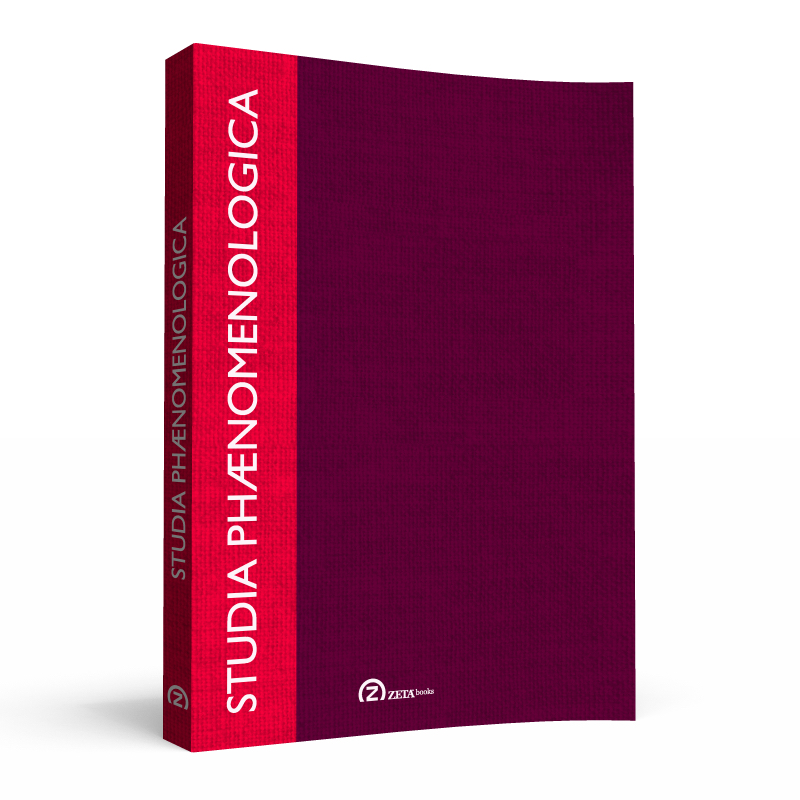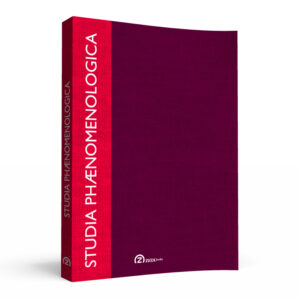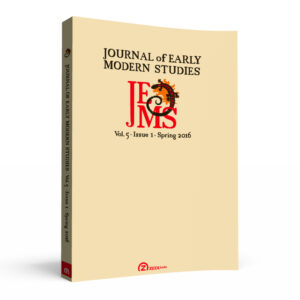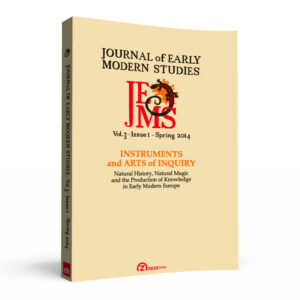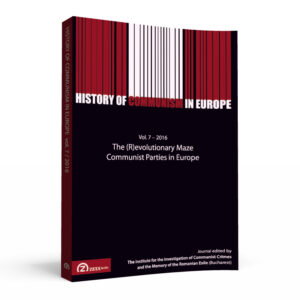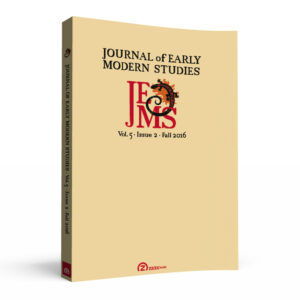PHENOMENOLOGY AND LITERATURE
Delia Popa: Introduction: Phenomenology and literature [OPEN ACCESS]
Claude Romano: La consistance de l’imaginaire
Abstract: This paper tries to explore the legitimacy of applying the phenomenological approach to poems, novels, to all that we classify, too conveniently, under the term “literature.” Such an approach is grounded in one claim: the literary text opens up to a world that is its “thing itself”. The thing of the text is not the text as a thing, in its linguistic and formal properties, no more than the thing of the painting is the canvas coated with pigments. However, what is the status of such a “world”? Is this “opening of a world” only a metaphor? Is the world of the literary work only an imaginary one? In order to answer these questions, it is necessary, first of all, to understand the limits of the structuralist claim that the object of literature is only literature as an object, that is as a linguistic construction and, secondly, to be aware of what is specific to the phenomenological account of the imaginary, in contrast with alternative accounts, such as the one grounded in the theory of speech acts and developed, among others, by Searle.
Ákos Krassóy: Proximity and Distance: on some Interconnections between Phenomenology and Literature
Abstract: Relations between literature and phenomenology vary greatly from proximity to distance depending on whether writers or philosophers give the definition. Writers in favour of the mission of phenomenology and phenomenologist relying on the visional power of literary examples can equally have a high regard for the other discipline thereby, nonetheless, preserving the demarcation. In the following, I will try to investigate these connections by debating the viewpoints of authors showing visible signs of appreciation on both sides. My examples are meant to be emblematic in as much as they are to represent a general trend in their field and serve as spokespersons of important stances in relation to the other genre.
Samuel Dubosson: L’ontologie des objets culturels selon Husserl: l’exemplarité de l’objet littéraire
Abstract: In this essay, I examine some aspects of Husserl’s ontology, in particular their nature, the understanding intuition which mixes a correct interpretation of these objects and the relationship between their historicity and their ideality. Especially, I critically evaluate way the incidence of the exemplarity of the literary object upon its design of the cultural objects.
Denisa Butnaru: The Literary Text and the System of Relevances
Abstract: The purpose of the present text is to show the importance of the system of relevances in respect of the analysis of the literary texts. This concept, developed by Alfred Schutz, helps not only to understand the relation between text and empirical reality as such, but it simultaneously questions the relation between reader, writer, and text. The questions raised by the status of the system of relevances help the phenomenological analysis of the literary text to achieve a better understanding of the act of signification (particularly that defined in the realm of literature) and of the status of reference. It helps also to understand how the configuration of experience as such can be modified according to the specific interaction accomplished within the act of reading.
Marc Crépon: Mourir pour?: La critique sartrienne de l’être pour la mort
Abstract: Relaying reflections from Les Mouches, Morts sans sépulture, Les mains sales and Huis-clos to some important arguments concerning death in L’Etre et le néant, the author discusses the relation between death and freedom. Criticizing Martin Heidegger’s views on Sein zum Tode, Jean-Paul Sartre argues that one’s relation to death deeply implies relations with the others, the living, but also the dead ones. The experience of death being absurd, the others are those who can make it meaningful, in the same way that I do for their own death. Sartre’s philosophy of freedom defends the original choice of the ones that I will remember and cherish, in a community that is more important than the living one: the community established beyond death.
Rajiv Kaushik: Architectonic and Myth Time: Merleau-Ponty’s Proust in The Visible and the Invisible
Abstract: In a Working Note to The Visible and the Invisible, Merleau-Ponty uses the fine phraseology of an “architectonic past” and a “mythical time” to describe Proust’s remembrances of things past. This paper first considers how this architectonic past sheds light on Merleau-Ponty’s ontology, and second how this results in a mythical time, which is an originary encounter with this past. Paying also attention to Merleau-Ponty’s final, completed reflections on “Swann’s Way,” Volume One of Remembrances of Things Past, I suggest that by exposing the inner-connection between the two senses of time, Proust is highly significant for Merleau-Ponty’s thesis of “reversibility”. Proustian remembrances are used by Merleau-Ponty not to expose an inwardness, but something that is withdrawn and behind the sensible. The way in which these remembrances operate in myth time bespeaks of a memorial dimension of the past of being itself.
PHENOMENOLOGICAL HERMENEUTICS
Ilya Inishev: Von der phänomenologischen Verstehenstheorie zur Phänomenologie der Lesepraxis
Abstract: The phenomena of reading and hearing were among the fundamental themes of Gadamer’s philosophical hermeneutics during the final decades of his life and scientific work. This assertion seems to be strange, especially if we pay attention to the fact that about the same time he worked on transforming his initial project of philosophical hermeneutics into the more ambitious hermeneutical philosophy. However, the universality of the phenomena of reading and hearing, which Gadamer defends in his last works, not only confirms but also concretizes the universality of the language dimension of all human experience. This concretization becomes apparent by explaining the structural correlation between hearing, understanding, and seeing. In view of these circumstances emerges the necessity of looking at the history of the “phenomenological movement” through the prism of the phenomenon of reading, which from the very outset was the implicit aim of phenomenological explanations.
Pol Vandevelde: Le modèle de la traductibilité chez Husserl et Ricœur: l’exemple de la littérature
Abstract: The essay is an examination of two models that have been used to think what “meaning” or “sense” is. Husserl offers the first model in which there is an exchange between the sense that is made in experience and the meaning that is articulated at the linguistic or logical level. The second model is offered by Paul Ricoeur in his theory of narratives. A narrative has a link to what took place that Ricoeur calls “représentance” or “lieutenance”: the narrative configures but at the same time does justice to what took place. The fiction involved in the “as” of “such as it was” is necessary for the “such” that guarantees an adequacy between the narrative and the action or event. I expand on these two models and offer a model of meaning that I call “translatability”.
THE POETIC EXPERIENCE IN THE LIGHT OF PHENOMENOLOGY
Marc Richir: Phénoménologie de l’élément poétique
Abstract: As a development of his former researches on speech – that he distinguishes from instituted language and that he identifies to thought – the author points out a special kind of fantasy, already observed by Husserl himself: the perceptive Phantasie. Analysed here as a form of transition from perception (Perzeption) to what is impossible to be represented (l’infigurable), this form of fantasy aims at what Winnicot understood as a transitional object. Preceding any intentional and even imaginary foundation (Stiftung), the perceptive Phantasie is the very core of speech, that poetry allows us to see as the living form of transcendental interfacticity. The perceptive Phantasie is thus the concrete condition of the “reflexivity” of meaning, which is accomplished in speech by a mutual affectivity, perception nourishing itself from the virtual.
Jad Hatem: Phénoménologie de l’image poétique
Abstract: The poetic image results from the effort undertaken by affectivity to express itself in a language that is not originally its very own, but that holds the advantage of being communicable not only at the level of representation, but at the level of feeling as well. The image is not considered, therefore, to be a synthesis of true and false. In the process of creation, the affect is the material principle of the image as an ideal unity of syntheses. It is implied here that poetic writing is not about a content of internal aiming, previously possessed by consciousness, that is made to correspond with an element of the world, eventually represented by means of sensible intuition. In order to illustrate this, the author interprets a poem by Nadia Tueni, showing that it is essentially about its own production.
Roland Breeur: Lazare au royaume de l’Hadès: Réflexions autour d’un poème de Luis Cernuda
Abstract: In this article, the author analyses Cernuda’s long poem “Lazaro”, in order to elucidate the inner relation between desire and reality that is central in his entire work. That relation is important not only in order to understand how imagination influences poetical creation, but also how poetical creativity acquires its autonomy and independency.
Kevin Hart: “it / is true”
Abstract: Following a hint from Edmund Husserl, this paper explores the proximity of the phenomenological and aesthetic gazes. It does so with one particular poem in mind: “September Song” by Geoffrey Hill. The paper examines the ways in which the poem responds to a given situation, the death of a child in the Shoah, and responds to the ethical status of its own aesthetic gaze. Phenomenological perspectives by Merleau-Ponty, Levinas, Derrida, and Marion, are brought to bear on the questions considered, and comparisons are made between Hill’s poem and similar poems by Dylan Thomas, Paul Celan, and W. S. Merwin.
THE PHENOMENOLOGICAL TENDENCY OF LITERATURE
Jean-Baptiste Dussert: Le primat de la description dans la phénoménologie et le Nouveau Roman
Abstract: The point shared by phenomenology and the French Nouveau Roman is that they both confer great importance to description. But is it philosophically interesting to compare the works of authors like Nathalie Sarraute, Alain Robbe-Grillet or Claude Simon (which relate to details in the material world) with the works of Husserl (whose object is the eidos)? In this article, we first study in what way the method suggested by Husserl was innovative and in what way it influenced his examples and style in the Ideen. We then examine how the fact that this operation no longer relates to beings could be construed as progress in relation to Heidegger. Finally, we study the reasons why this mode of speech was favoured in the novels of the 1960s. Our assumption, as the later writings of Maurice Merleau-Ponty show, is that this literary movement tried to achieve in the field of fiction the same breakthrough and to give description a scientific quality.
Ariane Mildenberg: Seeing Fine Substances Strangely: Phenomenology in Gertrude Stein’s Tender Buttons
Abstract: Gertrude Stein may be regarded as one of the most innovative and obscure modernist writers. At the core of Tender Buttons (1914), her most experimental work, lies a dialectical tension between meaning and non-meaning, order and disorder, the opacity of which some of the earliest critical studies of Stein described as both “an eloquent mistake” and “the ravings of a lunatic,” resisting interpretation. In this paper, I show that phenomenology offers an appropriate tool for opening up the much-discussed dialectic of this work. By “bracketing” the hard facts of our object-world, Stein enacts an epoché of sorts, allowing us to “see fine substances strangely” before the conventional structures of objectivity and factuality take over.
Vincent Giraud: L’invisible et la proie: Une lecture de Pascal Quignard
Abstract: The books of Pascal Quignard present themselves as a hunt for the invisible. The ambition that lies at their heart seems particularly compatible with a phenomenological approach. Indeed, this literary intuition – this “suspicion” in the words of Quignard – hinges on the nature and value of representation. This article tries to read the entire work of Quignard through the phenomenological lens. The elucidation of phenomenality is accomplished here through the steps of a process that leads to the very condition of vision. Once the essence of representation is established as a “predation”, the literary writing of the author reveals it as related to an absent, invisible prey. Through the successive and ascending figures of idolatry, love, art and contemplation, can then start a route to invisibility, which is a true pedagogy of seeing. This quest, conceivable as a learning process through which literature finds its ultimate aim, finally leads to a renewed understanding of the concept of representation.
Tobias Henschen: Furcht, Angst und hüzün: Die Entformalisierung zweier ontologischer Begriffe Heideggers durch Pamuks Begriff kollektiver Wehmut
Abstract: This paper attempts a new interpretation of Heidegger’s existential analysis of the phenomena of fear and anxiety. Heidegger is shown to analyze both phenomena as basic states-of-mind (Grundbefindlichkeiten). Basic states-of-mind are taken to differ from other states-of mind in that they are formal phenomena, i.e. phenomena that are not apparent or experienced themselves, but only concretize in apparent and experienced phenomena. As an instance of phenomena, in which the formal phenomena of fear and anxiety concretize, the paper presents hüzün, a collective mood described by Orhan Pamuk in his latest novel.
Olivier Lahbib: L’oubli du monde: Une lecture finkienne de Bret Easton Ellis
Abstract: In his novels B. E. Ellis depicts a generation of bewildered rich young people, who live the easiest of lives, in a wealthy background as one can see in everyday American shows. But they actually suffer from the excess of things, products, luxury; the result for them is that the overall meaning of life is lost. Fink’s phenomenology gives us the interpretation for this nihilistic experience. Humanity is depressed as far as the world is forgotten. Forgetting the world is even more scandalous and serious than the disregard of Being that Heidegger condemns. B. E. Ellis applies the method of reduction: he makes the epoché of the container-world. Consequently, we learn that the idea of the world is the condition for unity, coherence and direction as shows Fink’s Welt und Endlichkeit: Humanity when devoid of the totality (as a synonym for world) is absolutely devoid of meaning. The Cosmos-container comes before Being or the beings (as simple contents). World is the radical source for all data. With the arguments of Fink’s book Spiel als Weltsymbol, we may understand why Ellis’ characters strain to rebuild a world, with their new religion of trade marks and name dropping. But holy objects of consumption and luxury can’t produce an authentic world.
Martina Stemberger: Théophile Gautiers Voyage en Russie als „phänomenologisches“ Experiment avant la lettre
Abstract: Théophile Gautier, French romanticist writer, visits Russia twice in 1858/61. His Voyage en Russie (1866) is not just a travelogue, but rather an intrinsically philosophical text about travelling, about the perception of the own and the other, suggesting “(self)alienation”, “bracketing” of the world and one’s own experience as a means of aesthetic pleasure and intellectual penetration; a reflection on the “gift of the visible”; on the mutual in- and superscriptions of reality, imagination and art – in one word: a “phenomenological” experiment avant la lettre. This paper proposes a reading of Voyage en Russie through the prism of Merleau-Ponty’s phenomenology of perception, in particular of vision.
Hervé Vautrelle: La montagne de Mann, le désert de Buzzati, le rivage de Gracq: phénoménologie de trois espaces-temps littéraires
Abstract: This article aims to establish that literature is an ideal laboratory for undertaking some phenomenological experimentations, even when not explicitly intended by the author. By considering three works (Der Zauberberg by Thomas Mann, Il deserto dei Tartari by Dino Buzzati and Le rivage des Syrtes by Julien Gracq) that all tell the story of one man gone far away from his country and isolated in a mysterious, fascinating and closed place, we propose to study the complex relations that weave between space and time and between landscape and consciousness, and to deduce from it their phenomenological impact. We attempt to show that space localization and organisation influence and even modify the behaviour and the personality of humans, and induce a new relation to temporality: the mountain arouses boredom, the desert prepares the expectation and the shore brings the facing of one’s fate.
Jeffrey Andrew Barash: Heidegger and the Metaphysics of Memory
Abstract: My analysis in the following paper will focus on a subtle development in Heidegger’s interpretation of the theme of memory, from the period of his early Freiburg lectures to Being and Time and then in the works of the late 1920s. There is in this period an apparent shift in Heidegger’s understanding of this theme, which comes to light above all in his way of examining memory in the 1921 Freiburg course lectures Augustine and Neo-Platonism, then in Being and Time (1927) and finally in the 1928 lectures on the metaphysical foundations of logic (Metaphysische Anfangsgründe der Logik im Ausgang von Leibniz) and Kant and the Problem of Metaphysics (1929). This shift is of interest, as I will argue, not only in indicating an internal development of Heidegger’s thinking, but above all in regard to the problem of the finitude of memory which Heidegger brings into focus and which I will interpret in my concluding remarks.
Eric Sean Nelson: Heidegger and the Questionability of the Ethical
Abstract: Despite Heidegger’s critique of ethics, his use of ethically-inflected language intimates an interpretive ethics of encounter involving self-interpreting agents in their hermeneutical context and the formal indication of factical life as a situated dwelling open to possibilities enacted through practices of care, interpretation, and individuation. Existence is constituted practically in Dasein’s addressing, encountering, and responding to itself, others, and its world. Unlike rule-based or virtue ethics, this ethos of responsive encounter and individuating confrontation challenges any grounding in a determinate or exemplary model of reason, human nature, the virtues, or tradition.
Tracy Colony: Attunement and Transition: Hölderlin and Contributions to Philosophy (From Enowning)
Abstract: In this essay, I argue that the scope of Heidegger’s dialog with Hölderlin in Contributions to Philosophy is wider than has often been acknowledged. Traditionally, accounts of this relation have focused solely on tracing Heidegger’s appropriation of Hölderlin’s “flight and arrival of the gods.” In addition to this theme, the relation between Heidegger’s Hölderlin and the project of Contributions should also be framed in light of the specific understanding of attunement which Heidegger developed in his 1934-35 Hölderlin lecture courses. From the perspective opened by this reading, I bring into question and offer an alternative to a widely accepted interpretation of Contributions’ structural composition.
Alon Segev: The Absolute and the Failure to Think of the Ontological Difference: Heidegger’s Critique of Hegel
Abstract: The aim of this paper is to examine Heidegger’s critique of Hegel and to determine whether it is justified. Heidegger claims that Hegel tries to reduce everything to a single absolute entity, to the absolute knowing subject. The result is the identification of being and nothing, as Hegel formulates it at the beginning of his Logic. Hegel identifies being with nothing because being has no references, no predicates, no properties. Heidegger agrees with Hegel that being and nothing are the same, but in completely different respects. They are the same because only entity actually exists, i.e. as an existent being. But Being itself does not exist, and should be conceived in an utterly different way from entity. And since Being cannot “be” it is a non-entity and therefore nothing.
ISSN: 1582-5647
ISBN: 978-973-50-2223-5

